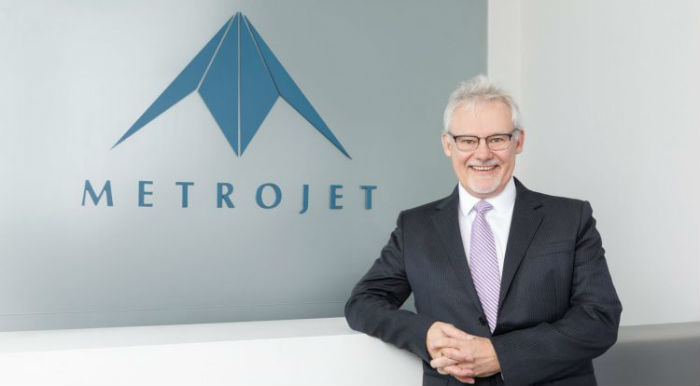Metrojet enters the hunting game

Gary Dolski
When it comes to taking the reins of a new company just at the right time, Gary Dolski’s appointment as the new head of Metrojet appears to have come at the perfect moment.
Following a down cycle in business aviation in China as well as the rest of Asia, Dolski’s appointment in September 2017 coincided with a resurgence of interest, not only in aircraft entering the region but also an increase in charter activity, especially in China.
When Dolski first took up the reins, his first task was to steady the ship. After settling in, he stepped back so as to understand why some things he saw and questioned happened for a reason. After this brief period, rather than introducing a five-year plan, he opted instead to implement a three-year plan with the full backing of his senior management team.
Believing that some issues arose from Metrojet’s growing its aircraft fleet quickly, Dolski says that one area Metrojet struggled with in the past was providing the proper and expected customer experience. “I believe that, over the last couple of years, we struggled sometimes on delivering an amazing experience, and this is a customer-satisfaction business. Sometimes when you grow a fleet very quickly, cracks form in the veneer and you have to go back and say how do we fix this. So, we are going back to basics.”
This even includes trying to grab a few seconds with key clients as they walk across the apron to their plane, to say hello and goodbye. Half of the time, Dolski says, the clients are very busy to talk whilst his team members doing this, but he still believes that it is vital: “… where else do you get these moments of truth with the ultra-high-net-worth individuals that entrust the safety and comfort in you? That is all it takes, just one minute to say ‘hello’ to your customer and ask how it is going. Rest assured, if it is not going well, they will tell you.”
Dolski’s approach is to lead by example, to bring in a ‘me too’ attitude right from the top. “When I walk through the hangar and there is a piece of FOD on the floor, I pick it up and if the CEO can do that, everyone in his team can do likewise. Very quickly, this becomes the norm and a culture is born.”
This also translates into talking to clients as they cross the apron to their plane, where Dolski says he helped a client with their luggage at 20:00 on a rainy Sunday night.
The approach he has taken has already had a steadying effect on Metrojet, with favorable feedback on the company, not only from its customers but also from the firm’s partners and competition as well.
But to grow, the company needed to take a different approach. Being based in Hong Kong, English is used as the main language, even in company’s contracts with mainland Chinese clients.
“In the past, we didn’t have our contracts in Mandarin in mainland China. That doesn’t work. If we are going to do business with you in mainland China, we are going to do it in Mandarin. Those changes have come into place and will open up some doors that weren’t previously open to us.”
It is not just the Chinese mainland that Metrojet has seen growth in the past 12 months, although Dolski concedes that this is mostly because the company has not really focussed on the other regions before, adding that, previously, the company was Hong Kong and China-centric, but that is now changing and other areas in South East Asia are on his radar.
This includes the setting up of its own Chinese Air Operators Certificate (AOC) and hiring Chinese staff for its mainland operation. “China for China” as Dolski says.
He believes that China is playing the long-term game, saying that eventually there will be a market there, though it won’t happen overnight. “We may be spending money for a few years, but if we look long-term, eventually this is going to happen. As infrastructure grows, airspace becomes available and more internal point-to-point flying becomes accessible.”
This change in strategy has helped the company begin to grow. Dolski says that the ship has pretty much been steadied now and that the company can now focus on growing.
“Before I would consider ourselves more as gatherers, people would drop us things. But we are hunters now. Our competition has been hunters, so I would now say that we are entering the hunting game”.








